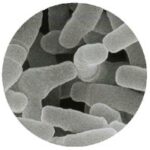 Mastitis is an infection of breast tissue that results in breast pain, swelling, warmth, and redness of the breast. It’s a common infection during lactation.
Mastitis is an infection of breast tissue that results in breast pain, swelling, warmth, and redness of the breast. It’s a common infection during lactation.
Researchers at the Universidad Complutense de Madrid, in Spain compared 2 lactobacilli strains isolated from breast milk to antibiotic therapy of lactational mastitis.
First, the details.
- 352 women with infectious mastitis were randomly assigned to a treatment group for 3 weeks.
- L. fermentum CECT5716, 9 log(10) colony-forming units (CFU) daily
- L. salivarius CECT5713, 9 log(10) CFU daily
- Antibiotic therapy prescribed in their doctors
And, the results.
- At the start of the study, the bacterial counts in milk samples of the 3 groups were similar (4.35 to 4.47 log(10) CFU/mL), and lactobacilli could not be detected.
- On day 21, the av erage bacterial counts in the probiotic groups (2.61 and 2.33 log(10) CFU/mL) were lower than in the antibiotic group (3.28 log(10) CFU/mL).
- L. fermentum CECT5716 and L. salivarius CECT5713 were isolated from the milk samples of women in both probiotic groups.
- Women assigned to the probiotic groups improved more and had lower recurrence of mastitis than those in the antibiotic group.
The bottom line?
The authors concluded, “The use of L. fermentum CECT5716 or L. salivarius CECT5713 appears to be an efficient alternative to the use of commonly prescribed antibiotics for the treatment of infectious mastitis during lactation.”
These findings support earlier research in 2008 by the same researchers. At that time they compared probiotics (L. salivarius CECT5713 and L. gasseri CECT5714) to no treatment in women with mastitis. After 14 days of treatment, the women in the probiotic group were cured, while the women receiving no active treatment continued to have signs of infection.
6/26/10 20:54 JR